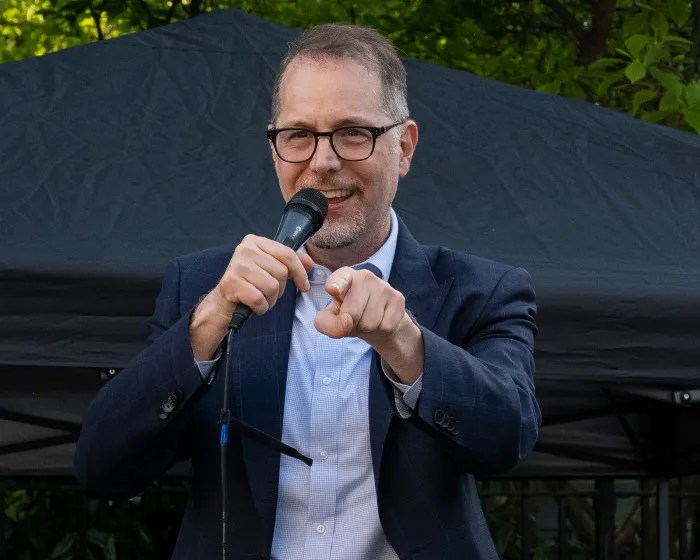Martin Luther King Jr.’s birthday had a particularly strong impact in Queens this year as events across the borough marked the 50th anniversary of the march on Selma, which he led, and the passage of the Voting Rights Act.
The nonviolent message of the Nobel Peace Prize winner was invoked many times against a backdrop in which the city and nation are struggling to come to terms with unresolved racial conflict. At the heart of this soul-searching is the relationship between the police and the black community following the deaths of Eric Garner in Staten Island and Michael Brown in Ferguson, Mo., at the hands of white officers.
In another milestone for 2015, Malcolm X, a civil rights activist from East Elmhurst who headed the Nation of Islam, was assassinated 50 years ago in February.
Adding to the historical record, the feature film “Selma” about King’s non-violent campaign to win equal voting rights by staging a march from Selma, Ala., to Montgomery was screened at the Queens Central Library in Jamaica for students on his birthday.
Several of the commemorative events in Queens were designed to teach young people about their own history.
Borough President Melinda Katz donated three books about race relations to all 63 branches of the Queens Library system to educate children and announced a four-part lecture series on the quest for equality.
Over at Merrick Academy in Springfield Gardens, Tuskegee Airman Dabney Montgomery, 93, told a group of children to stand tall. One of the last surviving members of the nation’s first black military pilot group, which flew in World War II, he led the youngsters in chanting “We will fight.”
Several days later Ilyasah Shabazz, Malcolm X’s daughter, visited Merrick Academy to put the children in touch with their history and to describe her father’s legacy.
An author, she used the occasion to introduce her new novel “X,” which she co-wrote, and to take questions from the students as she described the early years of her father’s life.
Congressman Gregory Meeks said Malcolm X taught black people to be proud of their race and paved the way for them to obtain leadership positions.
King’s achievements are visible in Queens and the rest of the country. Black Americans have far more opportunities today than they did 50 years ago, but more still needs to be done. We are at a critical juncture on racial tolerance in this city and we must carry on with King’s unflinching commitment to end human injustice for all regardless of race.


































